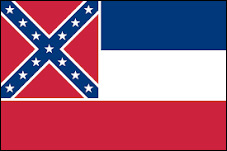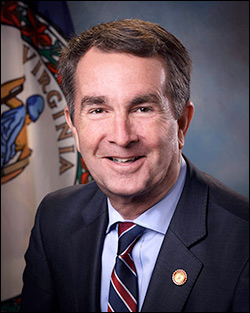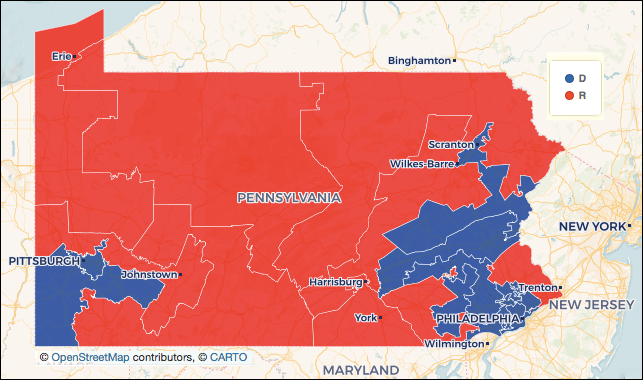By Jim Ellis

Mississippi state flag
While Hood, a four-term AG, holds a slight 44-42 percent edge, Reeves has closed the original six-point spread that Mason-Dixon first found in their December 2017 poll (Hood 43 percent; Reeves 37 percent). In April of last year, M-D projected Hood’s advantage to be 44-39 percent.
But, winning the popular vote is not all that’s required to win a Mississippi statewide race. In similar fashion to a presidential candidate needing to score a victory in the Electoral College, a Mississippi gubernatorial candidate must not only record the most votes in the statewide aggregate count, he or she must also win a majority of the 122 state House districts.
Currently, Republicans hold a 72-46 split in the state House with four vacancies. Thus, it would appear Reeves would have a strong opportunity to capture at least a bare majority 63 House districts, assuming the statewide count is close. If no candidate carries a majority of state House districts, the state House members would then vote to decide the election between the top two finishers.

 Feb. 6, 2019 — The Emerson College Polling Institute and Monmouth University just released two presidential polls, the former of Iowa voters, the latter, a national study.
Feb. 6, 2019 — The Emerson College Polling Institute and Monmouth University just released two presidential polls, the former of Iowa voters, the latter, a national study.


